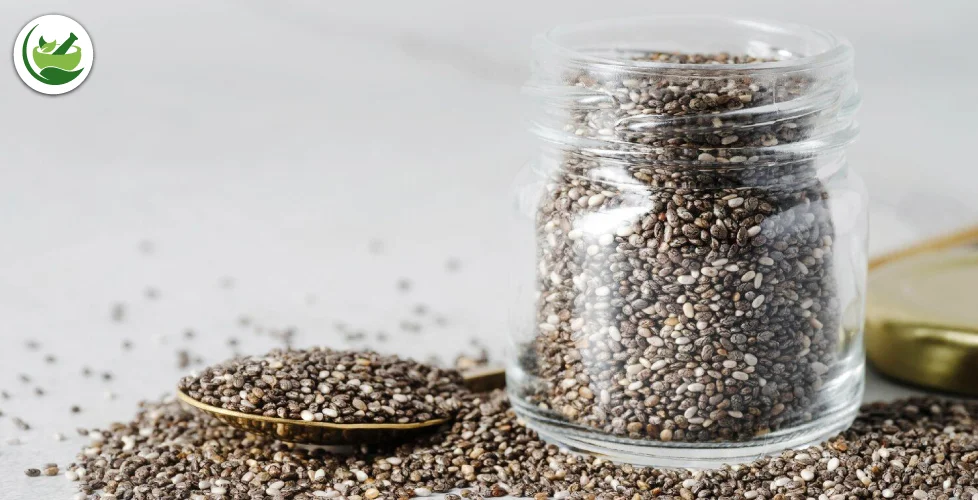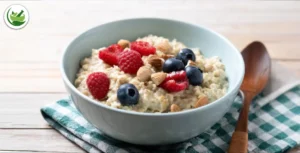Chia seeds, those tiny, nutrient-packed gems that have gained immense popularity in health food circles, are often touted for their extensive health benefits. But one of the most common questions surrounding these seeds is whether they help with bowel movements. Let’s dive deep into how chia seeds affect your digestive system and Do chia seeds make you poop? Lets started!

What are Chia Seeds?
Chia seeds are derived from the Salvia hispanica plant, which is native to Mexico and Guatemala. They are highly valued for their nutritional content, offering a rich blend of fiber, omega-3 fatty acids, proteins, and various micronutrients. This makes them an excellent addition to a health-conscious diet.
Health Benefits of Chia Seeds
Beyond promoting regular bowel movements, chia seeds offer several other health benefits:
1. Nutrient-Rich
Chia seeds are packed with essential nutrients, including omega-3 fatty acids, protein, calcium, magnesium, and antioxidants. These nutrients support overall health and wellness.
2. Heart Health
The omega-3 fatty acids in chia seeds help reduce inflammation, lower cholesterol levels, and improve heart health. Regular consumption of chia seeds can contribute to a healthier cardiovascular system.
3. Weight Management
The high fiber and protein content in chia seeds can help you feel fuller for longer, reducing overall calorie intake and aiding in weight management.
4. Blood Sugar Regulation
Chia seeds can help regulate blood sugar levels by slowing down the absorption of sugar into the bloodstream. This can be particularly beneficial for individuals with diabetes or those at risk of developing the condition.
Related blog Health Benefits of Black vs. White Chia Seeds
How Chia Seeds Affect Bowel Movements
Due to their high soluble fiber content, chia seeds can help regulate bowel movements. For individuals suffering from irregularity or constipation, incorporating chia seeds into their diet might help ease these issues. However, it’s essential to increase fiber intake gradually to give your body time to adjust. Adding too much fiber too quickly can lead to bloating, gas, or cramping.
Potential Side Effects
While chia seeds can promote bowel health, they can also cause digestive side effects if not consumed properly. Here are some tips to avoid any adverse effects:
- Hydrate Adequately: Since chia seeds absorb a lot of water, it’s crucial to drink plenty of fluids when you add them to your diet to help support the digestive process and prevent blockages.
- Start Slow: Gradually incorporate chia seeds into your diet. Start with a small amount, such as a teaspoon, and slowly increase it to give your digestive system time to adjust.
- Pre-soak Chia Seeds: Soaking chia seeds in water or any other liquid like juice or milk can pre-emptively expand them and make them easier to digest.
Related blog How The Benefits Of Chia Seeds And Diverticulitis Can Improve Your Digestive Health
Why do chia seeds make you poop?
Chia seeds are rich in dietary fiber, which is a key factor in promoting healthy digestion and regular bowel movements. Here’s a closer look at how chia seeds influence your digestive system:

1. High Fiber Content
Chia seeds are an excellent source of both soluble and insoluble fiber. A single ounce (about 28 grams) of chia seeds contains approximately 10 grams of fiber. This fiber content helps in the following ways:
- Soluble Fiber: This type of fiber absorbs water and forms a gel-like substance in the digestive tract. It helps soften stool, making it easier to pass through the intestines.
- Insoluble Fiber: This fiber adds bulk to the stool and helps move it through the digestive system, preventing constipation.
2. Water Absorption
Chia seeds can absorb up to 12 times their weight in water. When you consume chia seeds, they expand in your stomach, helping to keep you hydrated and adding bulk to your stool. This expansion can help stimulate bowel movements and prevent constipation.
3. Gut Health
The fiber in chia seeds acts as a prebiotic, feeding the beneficial bacteria in your gut. A healthy gut microbiome is crucial for proper digestion and regular bowel movements. By supporting gut health, chia seeds can help maintain a regular digestive rhythm.
Incorporating Chia Seeds into Your Diet
Adding chia seeds to your diet is simple. They have a mild, nutty flavor, making them easy to incorporate into various dishes. Here are a few ideas:
- Sprinkle on salads or yogurt.
- Mix into smoothies or oatmeal.
- Used as a pudding base mixed with milk and sweeteners.
- Add it to baked goods for a nutritional boost.
Related blog Maximizing Nutrition: Exploring The Benefits Of Chia Seeds In Smoothies
Tips for Consuming Chia Seeds Safely
While chia seeds are generally safe for most people, it’s important to consume them correctly to avoid potential digestive discomfort.
- Start Slowly: If you’re new to chia seeds, start with a small amount and gradually increase your intake to allow your digestive system to adjust.
- Hydrate Well: Chia seeds absorb a lot of water, so make sure to drink plenty of fluids when consuming them to prevent dehydration and ensure they pass through your digestive system smoothly.
- Monitor your body: Pay attention to how your body responds to chia seeds. If you experience any adverse effects, such as bloating or gas, adjust your intake accordingly.
Related blog Benefits of lemon water with chia seeds
Conclusion
Chia seeds can be a beneficial addition to your diet if you’re looking to improve digestion and promote regular bowel movements. With their high fiber content, they help to bulk up stool and make it easier to pass. However, it’s important to consume them mindfully, with plenty of water and a gradual introduction to your diet. Whether you’re looking to enhance your digestive health or simply enrich your diet with nutrient-dense superfoods, chia seeds are a versatile and effective option.






